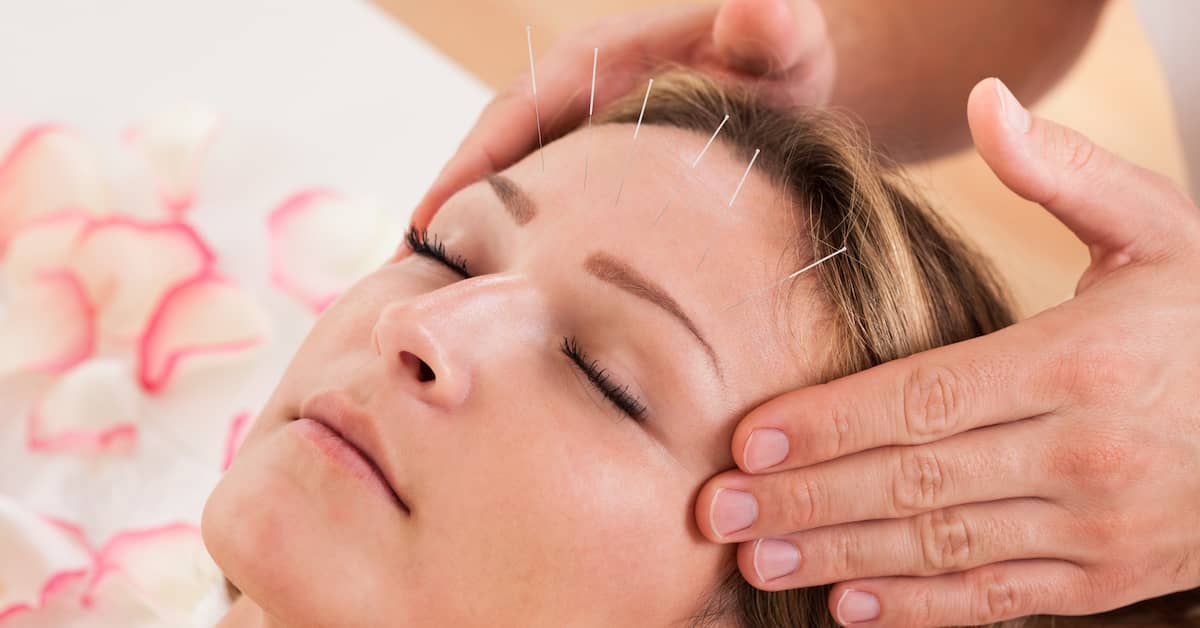
For centuries, acupuncture has remained a mystery—how can tiny needles influence pain, brain function, and overall well-being? While skeptics dismiss it as pseudoscience, new research from Harvard reveals measurable changes in the brain, suggesting acupuncture is more than just an ancient tradition. Could science finally be catching up with what Traditional Chinese Medicine has long understood?
Key Takeaways
-
Acupuncture Reshapes the Brain – Research shows that electro-acupuncture can rewire the brain’s pain-processing centers, particularly in cases like carpal tunnel syndrome, offering relief by altering neural pathways.
-
A Potential Aid for Brain Trauma – Acupuncture and acupressure have been linked to improved cognitive function and pain relief in individuals suffering from traumatic brain injuries, including chronic headaches and memory issues.
-
More Than Just Pain Relief – Beyond easing pain, acupuncture has been shown to reduce migraines, improve sleep, and even aid in addiction recovery by influencing brain chemistry.
Can Tiny Needles Rewire Your Brain? Science Weighs In
Acupuncture, an ancient Chinese medical treatment dating back more than 5,000 years, can be controversial. There's no question that acupuncture produces effects that boost people's feelings of well-being. However, many modern medical researchers still don’t consider acupuncture as a legitimate medical therapy for the many conditions it’s touted for because they still can't explain what makes it work.
As researchers at Harvard take a closer look, they’re starting to analyze measurable – and beneficial – changes in the brain that they say can only be the result of acupuncture.
Acupuncture involves stimulating areas of the body that in Traditional Chinese Medicine are considered influential to the flow of energy (called qi) through the body. Acupuncture stimulates these points of the body using ultra-thin needles. Although many people fear needles, almost no pain is involved because those used in acupuncture are so thin compared to the syringes used for injections. Acupuncture is traditionally used to safely relieve pain. Additionally, acupuncture has been linked to reduced symptoms of depression, anxiety, and stress by promoting relaxation and balancing neurotransmitter activity.
Acupuncture Improves Carpal Tunnel Syndrome
Research at Massachusetts General Hospital and other institutions shows that electro-acupuncture (where a small electric current is sent through the acupuncture needles) not only eases the pain of carpal tunnel syndrome in the wrists but also makes helpful shifts in the behavior and connection of the brain's neurons.1
In these tests, the scientists found that acupuncture reshapes the neuronal network in a part of the brain called the somatosensory cortex where the pain of carpal tunnel syndrome is processed. And that change eases the discomfort. In addition, acupuncture alters blood flow to the wrist in a way that also helps improve the condition.
"In other words," says researcher Vitaly Napadow, "both peripheral and central neurophysiological changes in CTS may be halted or even reversed by electro-acupuncture interventions that provide prolonged and regulated input to the brain - something that future, longer-term neuroimaging studies should explore."
Treating the Traumatized Brain
Other research indicates that acupuncture could be helpful as part of the treatment for some brain trauma injuries.
A study of people who experience chronic headaches from brain trauma shows that adding acupuncture to their therapies – particularly auricular acupuncture (where needles are used on points on the ears) –provides significant pain relief.2
And a study at the University of Colorado Boulder shows that acupressure – where, instead of needles, pressure from the fingertips is applied to acupuncture points – may help improve the thinking skills of people suffering mild traumatic brain injuries (TBIs).3
"We found that the study subjects with mild traumatic brain injury who were treated with acupressure showed improved cognitive function, scoring significantly better on tests of working memory when compared to the TBI subjects in the placebo control group," says researcher Theresa Hernandez. "This suggests to us that acupressure could be an effective adjunct therapy for those suffering from TBI."
Other benefits of acupuncture include:
Reducing the frequency of migraine headaches: Worldwide, an estimated one billion people suffer from migraines. A study in China on 147 people with migraines shows that acupuncture can reduce the number of headaches suffered per year. An editorial accompanying the study in the British Medical Journal concludes, "We now have good evidence that acupuncture is an effective treatment for episodic migraine."4
Relieving insomnia: A review study in Asia of research involving people who have trouble sleeping finds that after about three weeks of acupuncture, insomniacs usually "experience significant improvement."5 Another study shows that for cancer patients suffering sleep problems caused by chemotherapy, acupuncture is a sleep aid that is "safe, feasible and effective."6
Normalizing the part of the brain altered by drug addiction and potentially helping treat drug abuse. Lab tests in Asia demonstrate that acupuncture may reshape the ventral tegmental area of the brain and potentially make it easier to recover from heroin addiction.7
My Takeaway
It’s important to remember that acupuncture is rarely a primary treatment for any health condition and is certainly not a panacea. It’s most useful as an adjunct therapy added to other treatments in your healthcare regimen. That being said, acupuncture is a wonderful supportive therapy that has very few, if any, unwanted side effects. Best of all, it boosts feelings of well-being – and we could all use a little of that.
Summary
Acupuncture, a practice dating back over 5,000 years, has long been viewed with skepticism by modern medicine. However, new research from institutions like Harvard and the University of Colorado is proving its profound impact on the brain. Studies show that acupuncture can alleviate pain, improve cognitive function in brain trauma patients, and even help in addiction recovery. Electro-acupuncture has been found to rewire pain-processing centers in the brain, while acupressure has shown promise in boosting memory and reducing headaches. Although not a standalone treatment for most conditions, acupuncture is gaining recognition as a powerful complementary therapy that enhances well-being with minimal side effects.
Frequently Asked Questions
How does acupuncture actually work?
Acupuncture stimulates specific points in the body that influence energy flow (qi) and may trigger beneficial changes in the nervous system and brain.
Is acupuncture painful?
No, the needles used are extremely thin, causing little to no pain. Many people find the experience relaxing.
What conditions can acupuncture help with?
Research suggests it may help with pain management, migraines, insomnia, brain injuries, and even addiction recovery.
How long does it take to see results from acupuncture?
Some people experience immediate relief, while others may require multiple sessions over a few weeks to notice significant benefits.
Is acupuncture scientifically proven?
While some aspects remain debated, numerous studies show acupuncture’s effects on brain function, pain relief, and overall well-being.
- Maeda, Y., Kim, H., Kettner, N., Kim, J., Cina, S., Malatesta, C., Gerber, J., McManus, C., Ong-Sutherland, R., Mezzacappa, P., Libby, A., Mawla, I., Morse, L. R., Kaptchuk, T. J., Audette, J., & Napadow, V. (2017). Rewiring the primary somatosensory cortex in carpal tunnel syndrome with acupuncture. Brain : a journal of neurology, 140(4), 914–927.
- A Randomized Exploratory Study to Evaluate Two Acupuncture Methods for the Treatment of Headaches Associated with Traumatic Brain Injury Wayne B. Jonas, Dawn M. Bellanti, Charmagne F. Paat, Courtney C. Boyd, Alaine Duncan, Ashley Price, Weimin Zhang, Louis M. French, and Heechin Chae Medical Acupuncture 2016 28:3, 113-130.
- McFadden, K. L., Healy, K. M., Dettmann, M. L., Kaye, J. T., Ito, T. A., & Hernández, T. D. (2011). Acupressure as a non-pharmacological intervention for traumatic brain injury (TBI). Journal of neurotrauma, 28(1), 21–34.
- Xu S, Yu L, Luo X, Wang M, Chen G, Zhang Q et al. Manual acupuncture versus sham acupuncture and usual care for prophylaxis of episodic migraine without aura: multicentre, randomised clinical trial BMJ 2020; 368 :m697
- Kim, S. A., Lee, S. H., Kim, J. H., van den Noort, M., Bosch, P., Won, T., Yeo, S., & Lim, S. (2021). Efficacy of Acupuncture for Insomnia: A Systematic Review and Meta-Analysis. The American journal of Chinese medicine, 49(5), 1135–1150.
- Zhang, J., Qin, Z., So, T. H., Chen, H., Lam, W. L., Yam, L. L., Yan Chan, P., Lao, L., & Zhang, Z. J. (2021). Electroacupuncture Plus Auricular Acupressure for Chemotherapy-Associated Insomnia in Breast Cancer Patients: A Pilot Randomized Controlled Trial. Integrative cancer therapies, 20, 15347354211019103.
- Zhang, R., Cai, X., Song, X., Dong, C., Hou, X., & Lv, L. (2014). Normalization of ventral tegmental area structure following acupuncture in a rat model of heroin relapse. Neural regeneration research, 9(3), 301–307.
